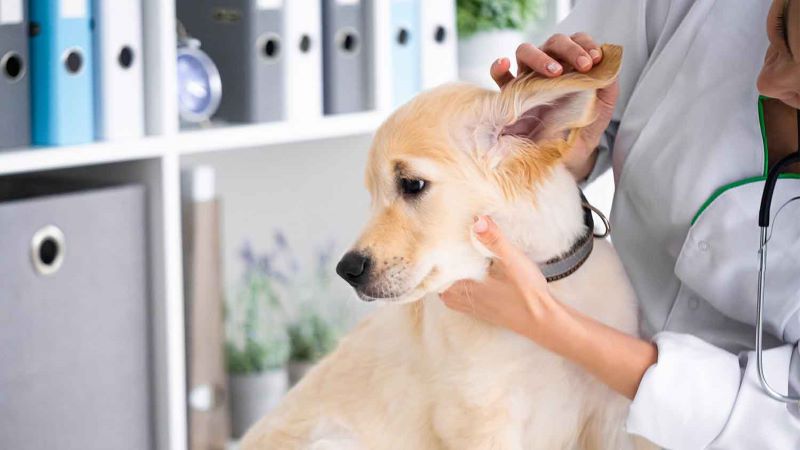It never failed that when I took my oldest son to the doctor for a well-check, the doctor would say, “Oh, and did you know he has an ear infection?” Well, after about eight or nine ear infections, that child went on to have ear tubes. The puzzling part was that he never complained of ear pain. The doctor explained that some kids have high pain tolerance, and some kids just aren’t complainers.
This trend seems to have followed us with our furry child. I’ll be at the vet with her for her annual wellness exam and the doctor will mention how icky her ears look and ask if she’s been pawing at them or shaking her head more than normal. I work from home, so I spend quite a bit of time with Hattie, but I never notice her being irritated by her ears. Turns out, dogs can be a bit like tiny humans, not bothered by ear discomfort until it is too late, and an infection has formed. So, today let’s talk ear care. When it comes to caring for your dog’s ears, here are three things you should keep in mind.
Check your dog’s ears once a week.
Establish a regimen of looking inside your dog’s ears once a week. If you have any other habits you stick to with your dog (brushing teeth or clipping his/her nails) just combine the habit of checking ears with the habit you’re already doing so you can make sure it gets done. If your dog has floppy ears, make sure to lift the flap to peer into the ear canal. If your dog is extra hairy, you can even ask your vet or groomer to shave some of the hair around the ear so you can get a better look.
Tip: Start manipulating your dog’s ears when he/she is a puppy. This will get him/her used to your weekly ear exams.
If you notice signs of infection, take your dog to the vet.
Pungent odor, discharge, blood, irritated or red skin, and inflammation are all signs of infection and require a trip to the doctor. Your dog’s behavior may be a sign of infection. If your dog is scratching and pawing at his/her ears, tilting his/her head, and/or turning in circles, it is a good idea to head to the vet. If your dog’s ear feels like a pillow or a balloon, an aural hematoma may be to blame, and you should visit the doctor right away. An aural hematoma is a broken blood vessel underneath the skin which causes the ear flap to fill with blood. Besides being very painful for your dog, if not treated by a doctor possible or permanent disfigurement may result.
Tip: Be proactive! Make an appointment at the first sign of infection. If you are already checking your dog’s ears regularly you will know when the ear does not look normal.
Be cautious about cleaning and/or treating dog’s ears at home.
Most veterinarians do not recommend daily ear cleaning, as it can cause the skin to break down due to excessive exposure to moisture. But there will be times you want to clean your dog’s ears, either weekly or monthly. Ask your vet for his/her recommendations on ear cleaning products, and always make sure you use a cleaner designed for dogs. In terms of treating a suspected infection, you should ask a veterinary professional before trying any treatments at home. Your veterinarian can check to see if your dog’s eardrum is intact. According to Dr. Matthew Goetz, DVM, medical director for the Arizona Animal Welfare League and SPCA in Phoenix, “If you have a ruptured eardrum, and you put certain medications in there, it can cause deafness.” Your vet can also do an ear swab which will test for yeast, bacteria, ear mites, and white/red blood cells.
Tip: Many veterinarians recommended ear cleaners that contain a safe drying agent which allows residual water to evaporate. If you take your dog swimming or get his ears wet during a bath, make sure to dry them out and/or clean them afterward, as moisture in the ear can cause infection.
Let Pet Insurance Help!
As always, making and keeping regular vet appointments is the best way to stay on top of your pet’s health. Illnesses like ear infections are a part of pet ownership. Invest in your pet's health this year by enrolling in pet insurance so you can provide the very best veterinary care as your pets age or come up against health conditions such as ear infections.

